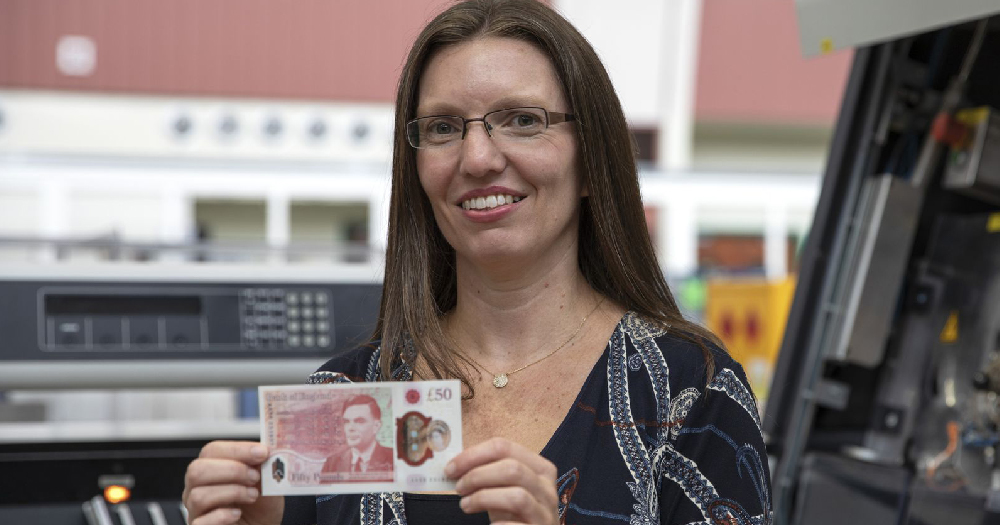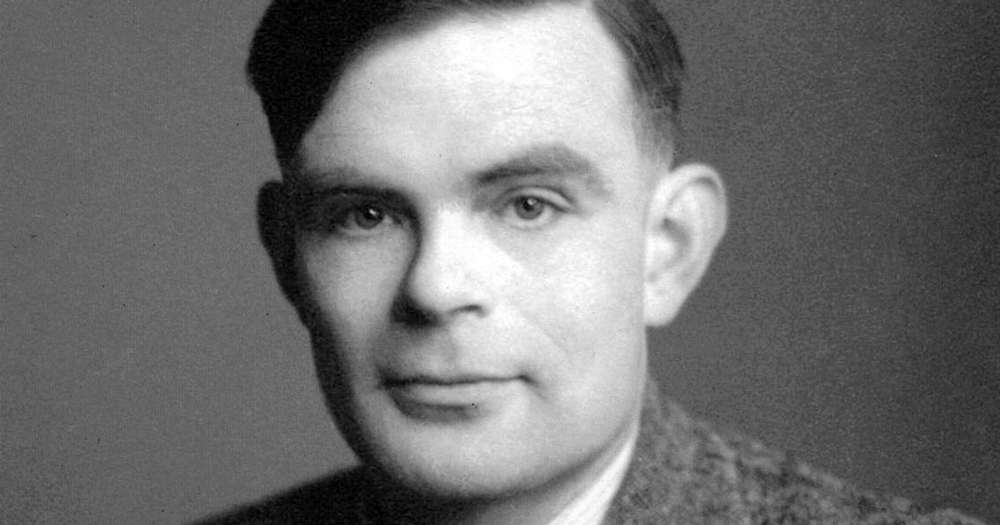England’s new £50 note featuring famed gay scientist and codebreaker Alan Turing has been revealed.
Chosen from a list of over 1,000 British scientists for his leading role in cracking the Enigma code during World War Two as well as the persecution he later suffered for his homosexuality, Turing’s note will enter circulation on June 23, his birthday.
The note features a portrait of Turing taken by Elliott and Fry in 1953 and is now part of the National Portrait Gallery’s collection.

The note will feature a quote from Turing, reading “this is only a foretaste of what is to come, and only a shadow of what is going to be” as well as depicting a ticker-tape of the scientist’s birth date in binary code.
Turing detailed the concept of a machine fed by binary tape in his 1936 paper ‘On Computable Numbers, with an application to the Entscheidungsproblem’, a seminal text for modern computer science.

Turing will be the first openly LGBTQ+ person to appear on an English banknote.
While the Alan Turing £50 banknote has been widely welcomed, some advocates feel it is not enough. Aidsmap executive director Matthew Hodson has suggested that a ban on conversion therapy would “truly honour” Turing.
Yes – the Alan Turing £50 note is wonderful.
Turing was chemically castrated for being gay and later committed suicide.
Truly honour him. #BanConversionTherapy. pic.twitter.com/zWlcrFU27j— Matthew Hodson (@Matthew_Hodson) March 25, 2021
Turing was voted BBC Two’s most influential person of all time as part of the network’s Icons: The Greatest Person of the 20th Century programme.
The computer scientist and mathematician beat out other legends such as Pablo Picasso, David Bowie and Nelson Mandela for the title.
Turing received a royal pardon from Queen Elizabeth II in 2013, sixty years after his conviction for gross indecency after his relationship with another man was discovered by police.
As a condition of his so-called crime, Turing was subjected to hormone replacement therapy which feminised his body in order to ‘reduce libido’. Due to his arrest, Turing was barred from continuing his scientific work for the British government.
Despite the importance of his work at Bletchley Park during World War Two, Alan Turing died by suicide in 1954, two years after his criminal conviction. Homosexuality in England continued to be a criminal offence until 1967.

Alan Turing’s Law came into effect in England and Wales in 2017 and acts as a widespread pardon for gay men who were either convicted or cautioned during the time that homosexuality was criminalised. This law is just another ripple effect of Alan Turing’s historical influence and importance as a member of the LGBTQ+ community.
Andrew Bailey, governor of the Bank of England, told Sky News that as well as honouring Turing for his codebreaking work, which helped end the Second World War, the new £50 note celebrates his efforts in advancing mathematics, pioneering modern computing and his identity as a gay man.
“He was a leading mathematician, developmental biologist and a pioneer in the field of computer science,” Bailey explained. “He was also gay and was treated appallingly as a result.”
By putting Turing on the note, Bailey said: “We are celebrating his achievements and the values he symbolises.”
© 2021 GCN (Gay Community News). All rights reserved.
Support GCN
GCN is a free, vital resource for Ireland’s LGBTQ+ community since 1988.
GCN is a trading name of National LGBT Federation CLG, a registered charity - Charity Number: 20034580.
GCN relies on the generous support of the community and allies to sustain the crucial work that we do. Producing GCN is costly, and, in an industry which has been hugely impacted by rising costs, we need your support to help sustain and grow this vital resource.
Supporting GCN for as little as €1.99 per month will help us continue our work as Ireland’s free, independent LGBTQ+ media.
